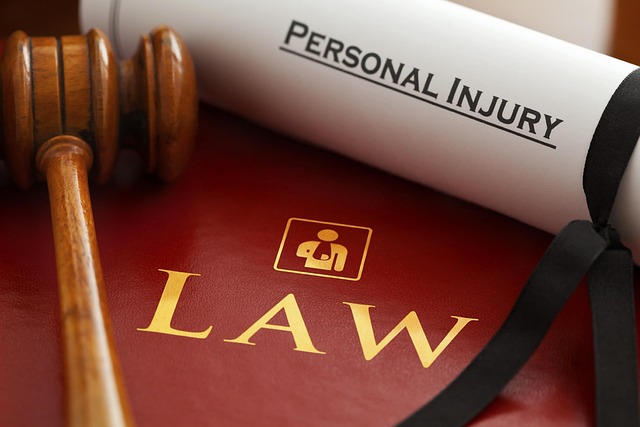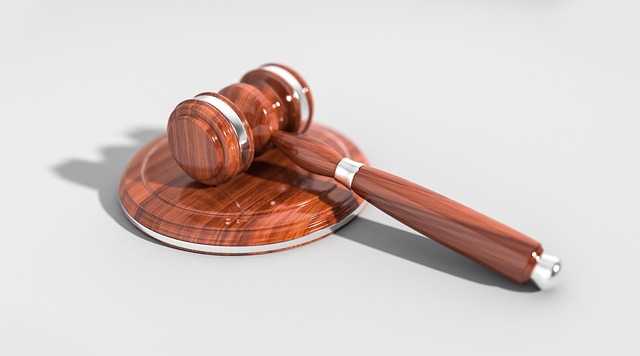Personal injury law protects individuals harmed by another's negligence or intentional actions, covering cases from car accidents to medical malpractice. Understanding key concepts like duty of care, negligence, causation, and damages is crucial for victims seeking compensation. Common types include motor vehicle accidents, medical malpractice, slips and falls, workplace injuries, and product liability claims, each requiring specialized legal knowledge. Navigating a lawsuit involves case evaluation, evidence gathering, consulting an attorney, filing a complaint, discovery, and adjudication based on personal injury law principles. After an accident, prioritize safety, seek medical care, document the incident, and consult an experienced attorney to protect your rights and maximize compensation.
“Uncover insights into the intricate world of personal injury law with our comprehensive guide. Whether you’re seeking understanding or preparation, this article provides a detailed look at key aspects. From grasping the fundamentals of personal injury law to exploring common case types and the legal process, we demystify this complex area. Additionally, discover your rights and potential compensation. Get equipped with knowledge to navigate these challenging situations effectively.”
- Understanding Personal Injury Law: A Comprehensive Overview
- Common Types of Personal Injury Cases and Claims
- The Legal Process: Navigating Personal Injury Lawsuits
- Rights and Compensation: What You Need to Know After an Accident
Understanding Personal Injury Law: A Comprehensive Overview

Personal injury law encompasses a wide range of legal issues surrounding accidents and injuries caused by the negligence or intentional actions of others. When an individual suffers harm due to someone else’s misconduct, they have the right to seek compensation and justice under personal injury law. This includes various types of cases such as car accidents, slip and fall incidents, medical malpractice, product liability, and more. Understanding the intricacies of this legal domain is crucial for victims navigating their rights and options.
A comprehensive overview of personal injury law involves grasping key concepts like duty of care, negligence, causation, and damages. Duty of care refers to the legal obligation individuals have to act responsibly towards others, while negligence occurs when a person fails to meet this standard, causing harm as a result. Establishing causation—the direct link between the defendant’s actions or inaction and the victim’s injuries—is essential for proving liability. Damages, which can include medical expenses, lost wages, pain and suffering, and punitive awards, are designed to compensate victims for their losses and hold negligent parties accountable.
Common Types of Personal Injury Cases and Claims

In the realm of personal injury law, a wide array of cases and claims exist, each with its unique circumstances. Common types include motor vehicle accidents, where injuries arise from car crashes involving negligence. Another significant category is medical malpractice, involving harm caused by healthcare professionals’ deviations from accepted standards of care. Additionally, slips and falls account for numerous claims, often stemming from dangerous premises or carelessness.
Workplace injuries, often covered under specific laws like workers’ compensation, are also prevalent. These cases encompass a range of incidents, from accidents to repetitive stress injuries. Moreover, product liability claims target manufacturers and sellers of defective goods that result in personal harm. Each of these scenarios requires a deep understanding of relevant laws and regulations to navigate the complexities of personal injury law effectively.
The Legal Process: Navigating Personal Injury Lawsuits

When navigating a personal injury lawsuit, understanding the legal process is crucial. The journey begins with evaluating your case and identifying liable parties. This involves gathering evidence, such as medical records, witness statements, and relevant insurance policies, to strengthen your claim. Consulting with an experienced attorney who specializes in personal injury law is essential during this phase, as they can provide guidance tailored to your specific circumstances.
The next step includes filing a legal complaint against the responsible party, outlining the damages you incurred due to their negligence or intentional actions. From there, both parties engage in discovery, where they exchange information and evidence. This process allows for fact-finding and preparation for trial or settlement negotiations. Ultimately, the case proceeds to adjudication, where a judge or jury determines liability and awards damages, ensuring justice is served in accordance with personal injury law principles.
Rights and Compensation: What You Need to Know After an Accident

After a personal injury accident, understanding your rights and compensation options is crucial under personal injury law. The first step is to ensure your safety and seek medical attention if necessary. Once stable, document the incident by taking photos of injuries, the scene, and any relevant details like license plate numbers or witness statements. This evidence can be invaluable when navigating the legal process.
Your rights include fair compensation for damages such as medical bills, lost wages, pain and suffering, and property damage under personal injury law. Consulting with an experienced attorney is essential to help you understand your specific entitlements and guide you through the often complex claims process. They will ensure that your rights are protected and fight for the maximum compensation you deserve based on the circumstances of your case.
Personal injury law plays a crucial role in ensuring victims receive fair compensation for their injuries. By understanding the various types of cases, the legal process, and your rights, you can navigate this complex landscape effectively. If you’ve been injured due to someone else’s negligence, don’t hesitate to delve into personal injury law to explore your options and fight for the justice and financial support you deserve.
